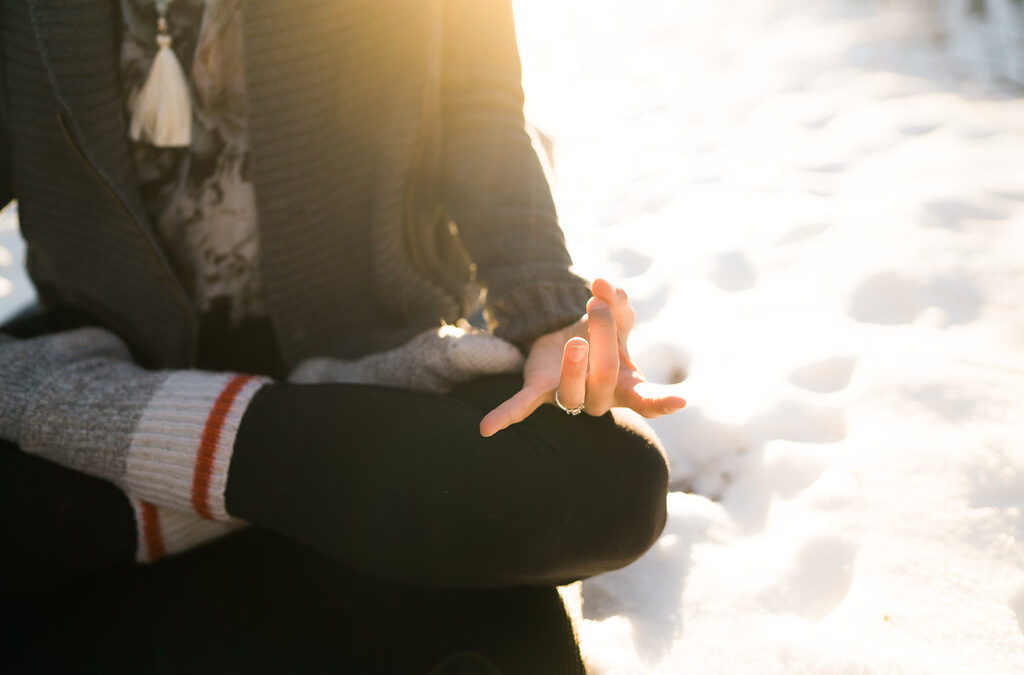Practicing yoga during the winter months can offer various benefits for both physical and mental well-being. Additionally, incorporating Ayurvedic tips to boost your inner fire (agni) can help balance your body and mind during the colder season. Here are some benefits of winter yoga and Ayurvedic tips:
Benefits of Winter Yoga:
1. Improved Circulation: Yoga poses and movements help stimulate blood circulation, which can be especially beneficial during colder months when circulation may be compromised.
2. Enhanced Immune System: Regular yoga practice has been linked to improved immune function. Strengthening your immune system is crucial during the winter to ward off seasonal illnesses.
3. Increased Energy Levels: Yoga can boost energy levels and alleviate feelings of fatigue, which can be common during the winter months.
4. Mood Enhancement: Yoga is known to have positive effects on mental health. It can help reduce stress, anxiety, and symptoms of depression, providing emotional support during the winter when some people may experience seasonal affective disorder (SAD).
5. Flexibility and Joint Health: Maintaining flexibility and joint health becomes crucial in colder weather. Yoga helps in keeping the joints supple and preventing stiffness.
6. Respiratory Health: Certain breathing exercises (pranayama) in yoga can enhance respiratory function, which is particularly relevant during the winter when cold air may impact the respiratory system. If you attend any of Leah’s classes, you will discover many different breathwork practices to benefit your respiratory health.
Ayurvedic Tips for Increasing Inner Fire (Agni) in Winter:
Warm, Spiced Foods: Include warming spices like ginger, black pepper, cinnamon, and cumin in your diet. These spices can kindle the digestive fire (agni) and help maintain internal warmth.
Stay Hydrated with Warm Liquids: Drink warm water, herbal teas, or warm soups throughout the day. Avoid excessive intake of cold beverages during the winter or ice in your drinks.
Regular Exercise: Engage in regular physical activity to keep the body warm and stimulate agni. This can include not only yoga but also other forms of exercise like brisk walking or strength training.
Maintain a Consistent Routine: Ayurveda emphasizes the importance of routine. Try to go to bed and wake up at the same time each day to support your body’s natural rhythm.
Oil Massage (Abhyanga): Regular self-massage with warm oils, such as sesame oil, can nourish the skin, improve circulation, and contribute to maintaining internal warmth.
Sun Exposure: Spend time outdoors to get natural sunlight, even during the winter. Exposure to sunlight is vital for vitamin D synthesis and overall well-being.
Nourishing, Seasonal Foods: Consume warm, nourishing foods that are in season. Opt for cooked vegetables, whole grains, and healthy fats to support your body’s nutritional needs.
Combining yoga practices with these Ayurvedic tips can contribute to a balanced and vibrant winter experience, promoting overall health and well-being.
(As always, it’s advisable to consult with a healthcare professional or Ayurvedic practitioner for personalized advice based on your individual constitution and health status.)
Wishing you a cozy winter – from all of us at Studio Nine.

Written by Leah Marie Serna, RYT 500, yoga practitioner, meditator, and co-owner / yoga instructor at Studio Nine. She teaches the Monday Move to Meditate classes, the Tuesday and Thursday morning Foundations & noon Flow classes and Wednesday Yin & Kundalini classes. She also serves as the yoga studio manager.

